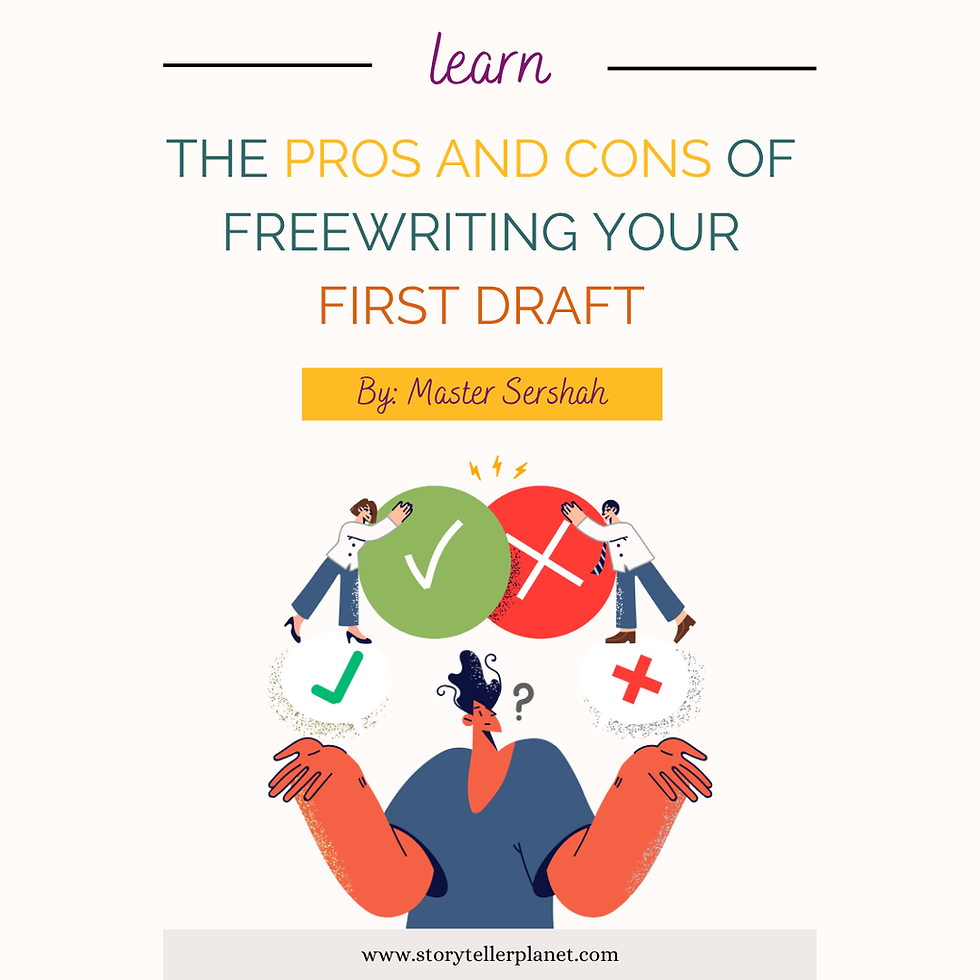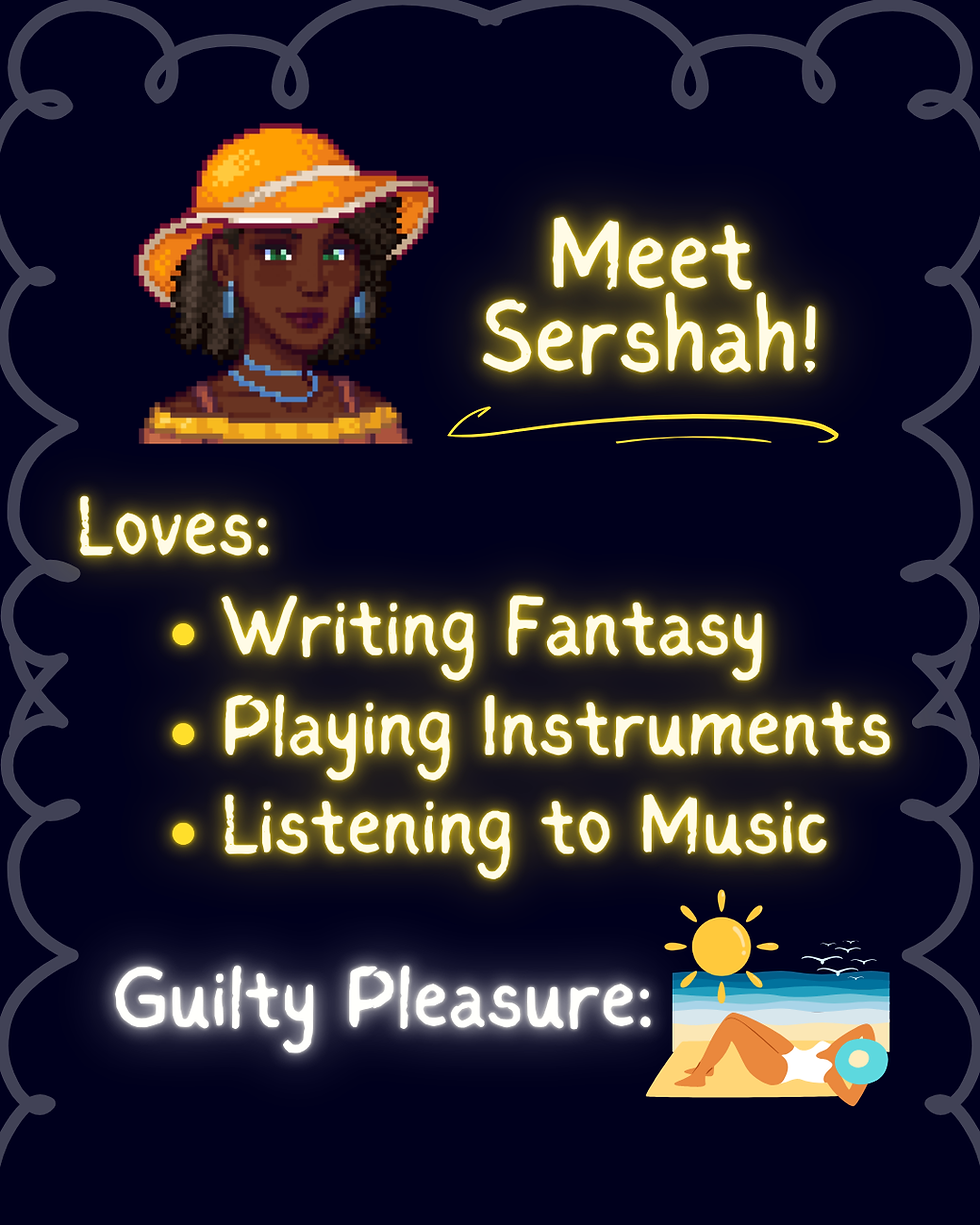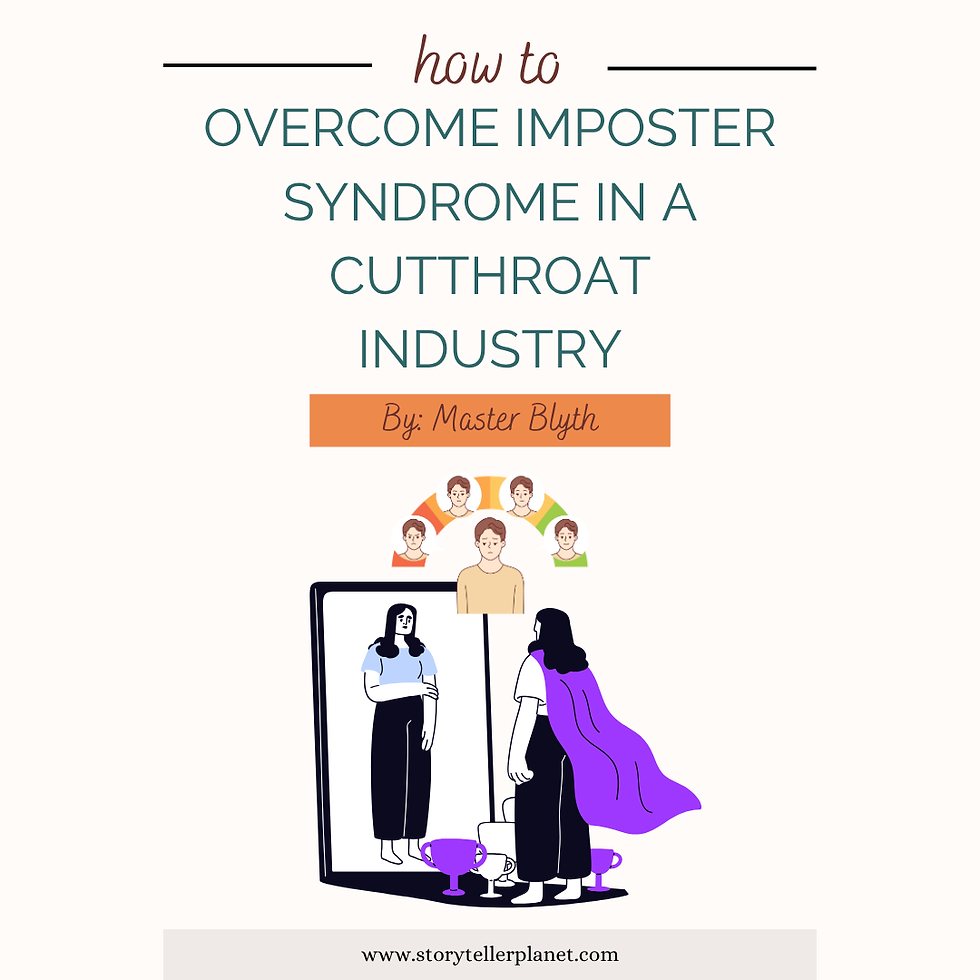The Pros and Cons of Freewriting Your First Draft
- Sershah

- Aug 7, 2025
- 3 min read
Updated: Aug 12, 2025

You have an idea that has a character and a few side characters with very little detail thought out. You're itching to start writing without planning out a single plot point. It is both exciting and terrifying to begin a new story. But you can't help but ask yourself, "Is this the best way to approach writing your idea?" Would it be better to take a step back and set up a few more details? Let's find out the pros and cons of planning vs pantsing your first draft.

The Ways of the Planner
Pros:
Being structured gives you the ability to shape your story before you write it, giving you less chance of having writer's block.
You have a clear roadmap of where you're going, and can focus on writing rather than building.
A high chance of consistency with minimal plot holes or failed character development.
Cons:
Having a preset outline gives little room for spontaneous creativity and can give the story a rigid feeling.
A lack of flexibility can make you lose interest in your story because you already "wrote it".
There's a chance for higher procrastination from the pressure of having a finished outline that you have to write.

The Ways of the Pantser
Pros:
Creative freedom runs at your fingertips, and anything goes.
You build your world as you go, giving into wild ideas that pop up along the way.
A high chance of getting in the "flow" because you're writing from your gut rather than a set of outlined moments.
Cons:
Disorganization is common and can often hinder progress if you don't keep important details in order.
Forgetting key details from previous chapters/books can make or break your story because of a lack of consistency.
A high chance of writer's block because you've written yourself into a corner that you have no logical way of getting out of without rewrites.
Personally, I find it helpful to combine the pros of both of these traits to avoid the negatives. There have been times that I've outlined an entire book only to get to the fifth or sixth chapter and have to tweak the story. While there are some awesome ways to approach the writing process, there are an infinite number of ways to get it done right.

How To Freewrite With a Plan
No matter which path seems more enticing, freewriting your ideas out is always a great way to start a story. It connects you to the deeper nuances of your intention without getting caught up in the finer details. Freewriting organically is more fun when you have a few core details set in stone.
Here are some details to consider before freewriting:
Who is the main character?
What side characters are connected to them (if any)?
Where is this story starting, and do we stay here the entire story?
Where do the obstacle(s) come from?
Why do we care about this story?
The last question may seem a bit harsh, but it's better to know why we should care about this journey before you set off to write it. Focusing on your why will keep you grounded in the reason you wanted to write this story and acts as a home base for days you feel uninspired. Use these questions to provoke more questions about your work and the potential it has. Freewriting is the best way for you to connect to the truth of your story and can be done chapter by chapter or even scene by scene. No matter how you approach it, always write with an open mind and an open heart. The rest will come organically.
About the Author

)_ed.png)
.png)
.png)
)_ed.jpg)







Comments